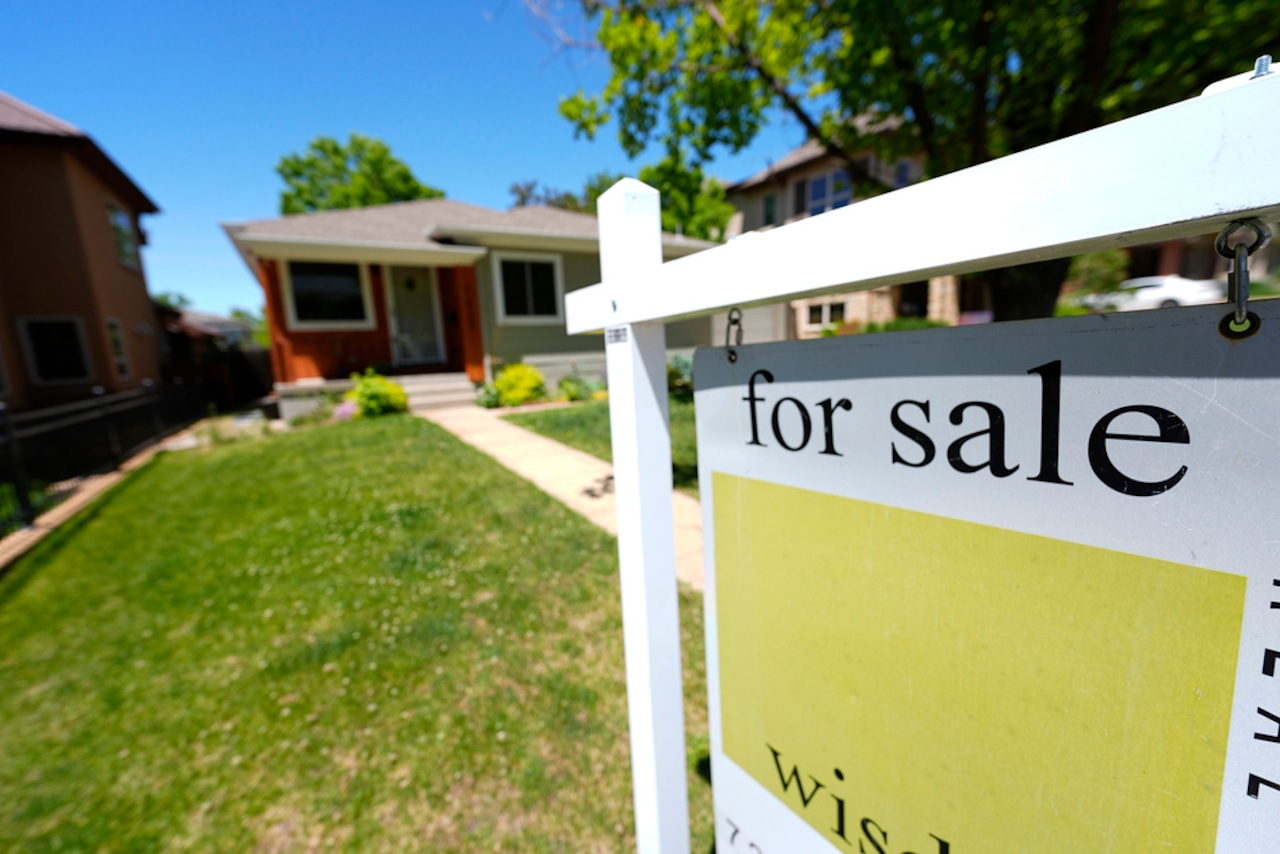
A key provision of Gov. Maura Healey’s plan to address Massachusetts’ crushing housing access and affordability crisis appears officially dead on Beacon Hill.
And the tale of its demise is an object lesson on how things get done — or more often, do not get done — in the halls of the State House.
The Democratic governor’s plan to allow municipalities to impose an up to 2% tax on residential home sales of $1 million or more didn’t make the cut in a nearly $5.2 billion housing bond bill the state Senate released on Monday.
Its omission comes weeks after the state House approved a $6.5 billion bond bill that also didn’t include the tax, which advocates say would raise tens of millions of dollars to help build affordable housing statewide.
Both chambers are controlled by Healey’s fellow Democrats.
Advocates, who said they support components of the proposal, knew it was coming. But that didn’t take away the sting.
“Obviously, we’re disappointed,” Matt Martinez, a housing lawyer who helped lead the charge for the tax, said. “We believe that, on top of the investments [in the bond bill] policy changes are important too.”
“We have to give municipalities the tools that they need,” he continued. “If we are going to be serious about tackling the [housing] crisis, we need investment from the cities, the state, and the local level.”
The omission also is a political defeat for Healey, who’d positioned the tax as a key part of addressing skyrocketing housing prices.
Healey’s office said earlier this spring that the tax, if adopted, would affect “fewer than 14% of all residential sales,” according to State House News Service.
At least 10 cities and towns — Boston, Somerville, Cambridge, Arlington, Amherst, Chatham, Concord, Provincetown, Truro and Wellfleet — have sent the Legislature home rule petitions seeking permission to launch real estate transfer fees, the wire service reported.
In the end, the language was the casualty of an orchestrated effort by Boston’s real estate industry urging lawmakers to oppose it.
In April, the Greater Boston Real Estate Board, a powerful and influential trade group, launched what it described as a “multifaceted digital and grassroots activation campaign,” against the transfer tax language first included in the $4.1 billion bond bill that Healey introduced last fall.
The group argued that the tax would drive up costs, scaring away buyers at a time when the state’s housing market was already squeezed.
“Increasing housing costs during an affordability crisis makes zero sense and we need to broadcast that message loud and clear, so legislators are keenly aware,” the group’s CEO, Greg Vasil, said, according to the Boston Globe.
It paid off.
Between March and May, state House Speaker Ron Mariano, D-3rd Norfolk, one of the most powerful lawmakers on Beacon Hill, had pivoted from saying his chamber was open to the tax to casting doubt on its future.
“It’s not as popular as I thought it might be,” the Quincy lawmaker said.
As recently as last week, senior Senate leaders were hazy on the prospect of the language appearing in their version of the proposal.
In a statement on Monday, Vasil praised some of the bill, while noting that “to overcome the housing crisis, leaders on Beacon Hill need to prioritize policies that reduce barriers to housing creation, which will in turn help generate production of homes across all price points.”
He also thanked legislators for “rejecting flawed policies such as transfer taxes.”
At a news conference on Monday at the State House, the upper chamber’s point person on housing, Sen. Lydia Edwards, D-3rd Suffolk, said her colleagues wanted to look at fixing or tweaking existing revenue-raising measures in state law before authorizing a new one.
“ … We think it’s incumbent upon us to look at what we have already provided, and the tools in the toolkit for a lot of cities and towns, and to make sure they are sharpened to their best potential,” Edwards, the Senate chairperson of the Legislature’s Joint Committee on Housing, said.
The Boston lawmaker likened the bill, and the vote on it that’s looming later this week, to a “course correction,” while leaving the door open to future efforts to address the housing crisis.
Asked whether lawmakers could muster the political will to undertake a similarly heavy lift in the future, Edwards cut to the chase.
“I don’t think we have a choice,” she said.
Nationwide, 13 of the 50 states, and the District of Columbia, do not levy a some form of the transfer tax, according to a tally by the Land Conservation Assistance Network, a Maine-based conservation group.
For one veteran advocate that decision amounted to a lost opportunity.
That’s because the near-term gain from the tax would have helped to address the affordability crisis now, while the bond bill addressed deeper, more structural issues in the state’s housing market.
“We know that we’re in a housing and displacement crisis,” Carolyn Chou, of the advocacy group Homes for All Massachusetts, said. “We know that what we build matters and it has to meet the needs of working-class communities.”
Before anything else happens, the Senate has to approve the bill. Then, House and Senate negotiators have to get a final bill onto Healey’s desk. And with formal sessions ending for the year on July 31, they’re up against the clock.
Edwards declined to speculate Monday on what a final housing bill could look like.
But, she said, “we’re confident in our ability to negotiate.”






